Two Years Later, The Effects Of The Ebola Crisis on Education Linger
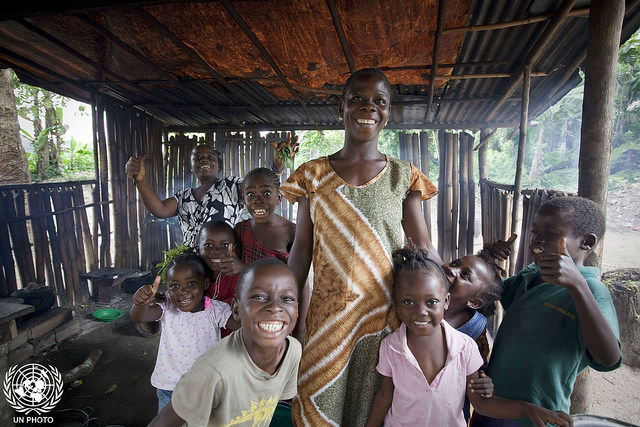
Photo by UN Photo/Staton Winter.
This January, the World Health Organization (WHO) declared the Ebola outbreak over. The announcement was made just a few months shy of the March 24 two-year anniversary of the day the first case of Ebola was discovered in rural Guinea. Sadly, the effects of the crisis linger and two new Ebola cases threaten progress made.
GBC-Education led the education response to the outbreak at its onset, partnering with A World at School to release Ebola Emergency: Restoring Education, Creating Safe Schools and Preventing Long-term Crisis, calling for the safe, responsible, reopening of schools. The outbreak forced 5 million school children out of the classroom for nearly a year.
Even after schools reopened, barriers to education continued to keep children out of the classroom. Within months of the outbreak, early-forced marriage skyrocketed along with teenage pregnancy. Laws were passed keeping these teenage girls out of school in Sierra Leone and limiting the number of students able to gather in a classroom in Liberia, forcing schools to turn away children attempting to register. Additional funding was needed to clean and rehabilitate schools — often used as temporary hospitals — to provide safe learning environments.
Evidence shows that students who are out of school for a year or more are at a far greater risk of never returning, increasing the chance that they are subject to violence, rape, child labor, and recruitment into fighting and prostitution. In emergencies, education can save lives in both the short- and long-term by providing children with vital information and survival skills such as how to protect themselves from sexual abuse, identify dangers like land mines, or avoid health risks like Ebola through hand-washing precautions. Without access to a safe place to learn, marginalized children may never reach their full potential; yet, through school, critical support — including access to preventative health services — can be delivered to entire communities, effectively combating emergencies like the Ebola outbreak.
Thus far, companies, including GBC-Education members such as Oando Foundation, have reacted by supporting efforts to fortify and rebuild key pillars of society including education in Ebola-affected countries and backing a broader education and emergencies financing mechanism to support safe learning during future crises so that adequate action can be immediately taken. PwC assisted in coordinating the Ebola Private Sector Mobilization Group chaired by ArcelorMittal and comprised of 50-plus companies partnering to deliver financing, key resources, and infrastructure to respond to the crisis. And, with locations based all over the world including Ghana and Sierra Leone, Standard Chartered took measures to protect their staff and clients through ensuring medical coverage and access to health equipment. The company leveraged their financial services to extend lines of credit to health workers and partnered with the government to match employee donations to contribute to a national fight against Ebola in Sierra Leone.
This type of private sector leadership in the face of emergency has shown us of the need to work together in response to crisis. We must continue to build upon these efforts to make sure that education is part of the initial response so that the effects of crisis do not linger.
Learn More About Ebola:
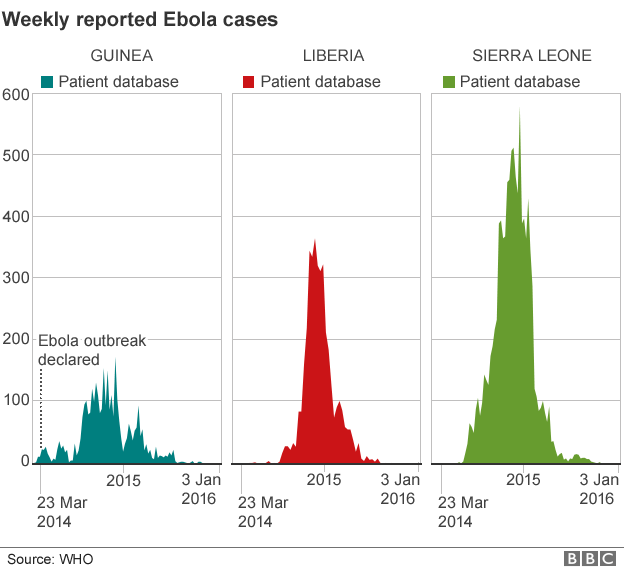
Source: WHO/BBC.
EBOLA DEATH TOLL
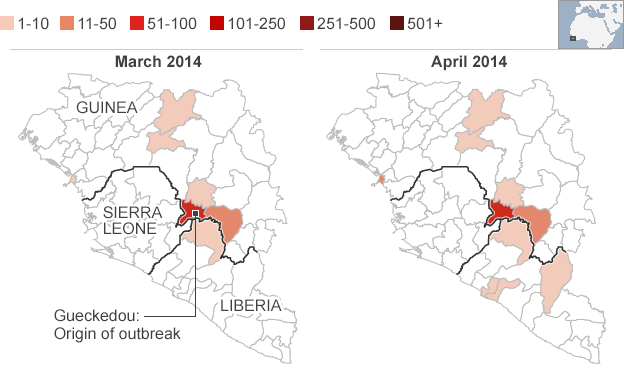
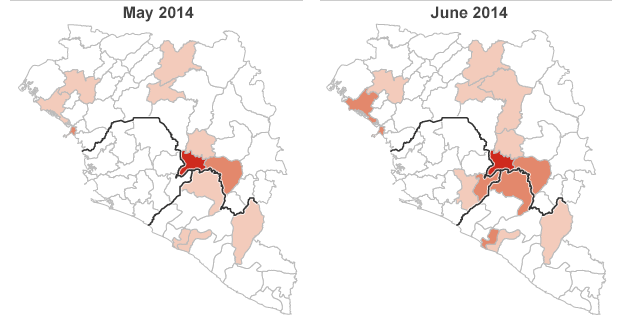
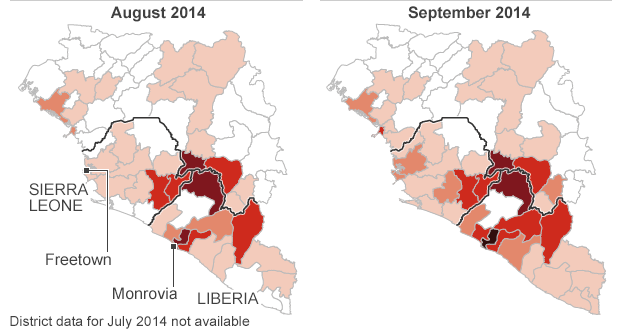
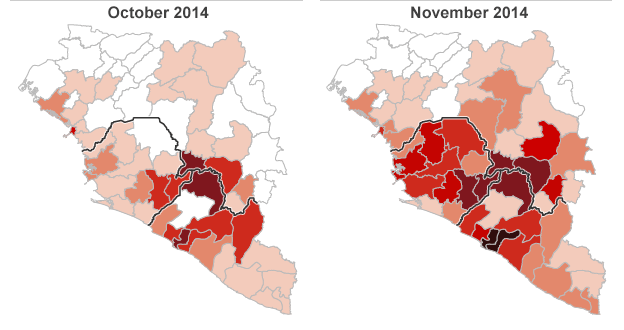
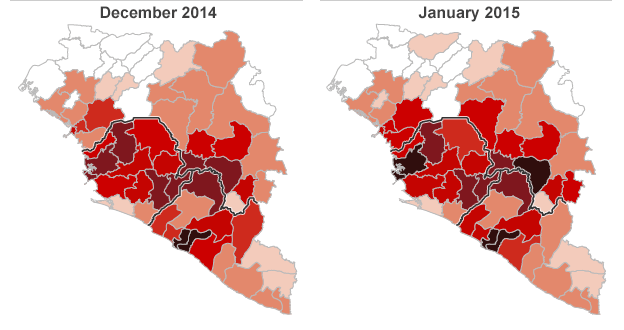
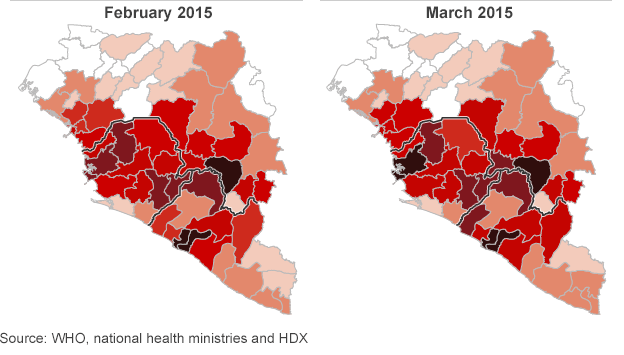
Photos By WHO, national health ministries, HDX/BBC.
EBOLA OUTSIDE OF WEST AFRICA
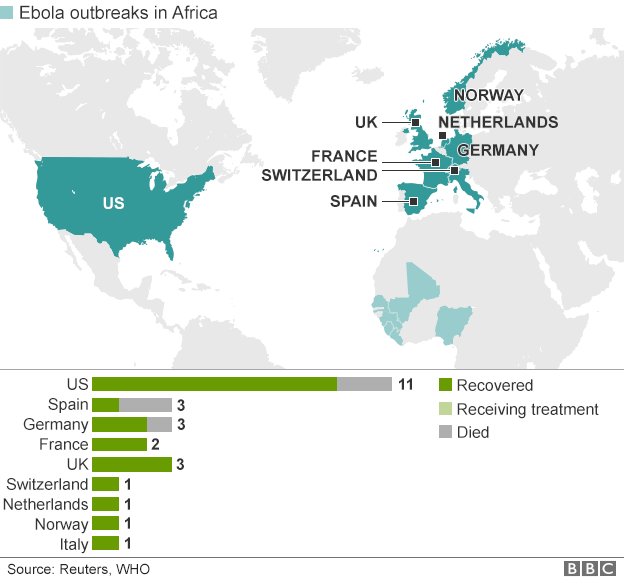
Source: Reuters, WHO/BBC.
PAST EBOLA EPIDEMICS
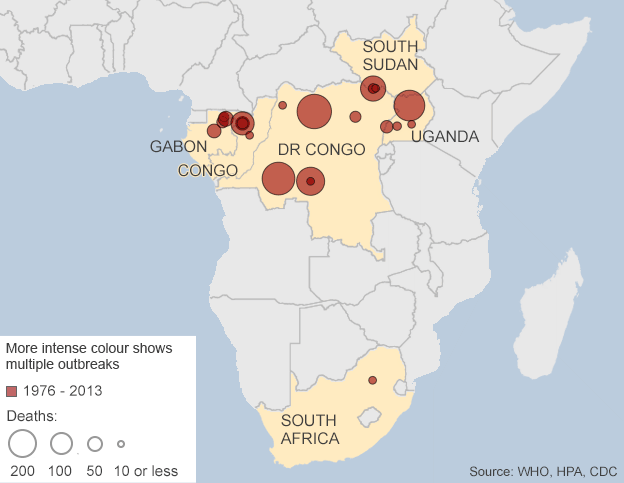
Source: WHO, HPA, CDC/BBC.
